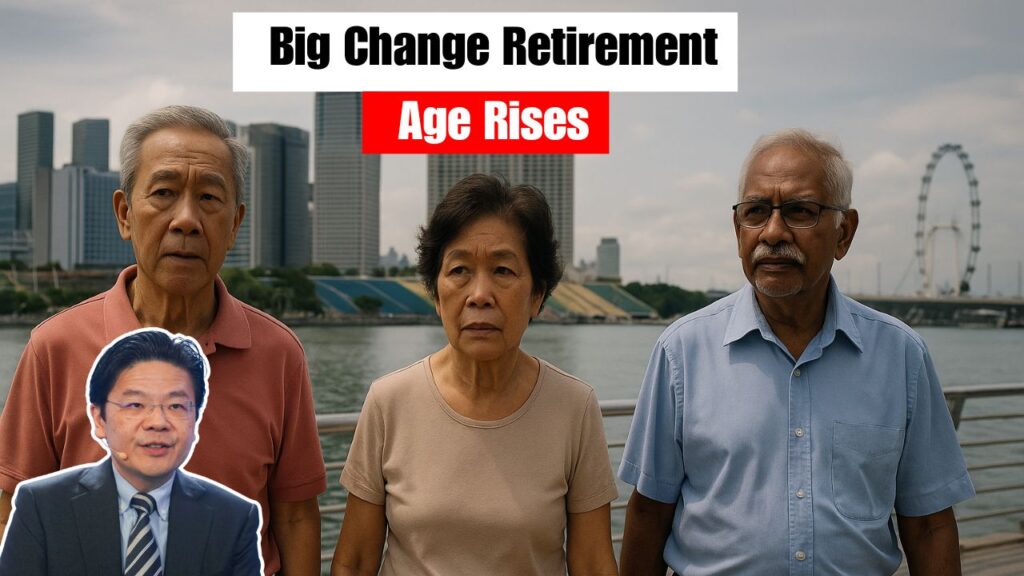Singapore is set to increase its official retirement age from 63 to 64 in 2025, marking a significant step in supporting longer employment and financial stability for aging citizens. This change is part of the government’s broader initiative to ensure that older Singaporeans remain active contributors to the workforce while enjoying greater flexibility in career planning. The move will also impact CPF contributions, re-employment options, and workplace policies, making it important for both employers and employees to understand how this adjustment affects their long-term plans and rights in Singapore’s labor market.

New Retirement Age Policy in Singapore
The Singapore government has confirmed that the retirement age will rise to 64 in 2025 as part of the national effort to extend working years and support older employees. This shift aims to ensure that seniors remain financially secure while businesses retain experienced workers. The gradual increase also aligns with the city-state’s focus on inclusive employment and workforce longevity. By extending the limit, more citizens can benefit from continued CPF contributions, additional savings growth, and stronger retirement readiness.
Impact on Employers and Employees
For many companies in Singapore, the rising retirement age means a need to adapt policies around re-employment rights and contract renewals. Employers are expected to review HR frameworks to accommodate longer working tenures and provide age-friendly environments. On the other hand, workers gain an opportunity for career extension and enhanced financial planning. These adjustments help build a more sustainable workforce while reducing the pressure of early retirement on individuals and the economy.
CPF and Financial Implications for Seniors
As the retirement age rises, CPF contributions and payouts will continue to play a key role in ensuring retirement income security. Employees who work beyond 63 will accumulate more funds through employer contributions and personal savings, improving their overall financial well-being. The government encourages continued participation in CPF schemes, emphasizing that every extra working year can significantly boost future payouts and create a stronger safety net for Singapore’s aging population.
Summary and Outlook
Raising the retirement age to 64 in Singapore reflects the country’s proactive approach to workforce sustainability and elderly welfare. By promoting extended employment and long-term savings, the government aims to balance economic productivity with social inclusion. Both workers and employers should prepare early to adapt to these changes, ensuring that future transitions are smooth and beneficial for all parties involved. The upcoming policy represents a vital step toward a more secure and resilient retirement landscape in Singapore.
| Category | Details |
|---|---|
| New Retirement Age | 64 years (effective 2025) |
| Current Retirement Age | 63 years |
| Re-employment Age | Up to 69 years |
| Key Benefit | Longer working opportunities |
| Main Authority | Ministry of Manpower (MOM) |
Frequently Asked Questions (FAQs)
1. When will the new retirement age take effect?
The new retirement age of 64 will take effect in 2025.
2. Who will benefit from the higher retirement age?
All Singaporean employees aged 63 and above will benefit.
3. Will CPF contributions increase with the new policy?
Yes, longer employment leads to extended CPF contributions.
 $2,250 year-end support approved for December 2025 – here’s who qualifies and when to expect payment
$2,250 year-end support approved for December 2025 – here’s who qualifies and when to expect payment
4. How should employers prepare for the change?
Employers should update HR policies and contracts accordingly.



